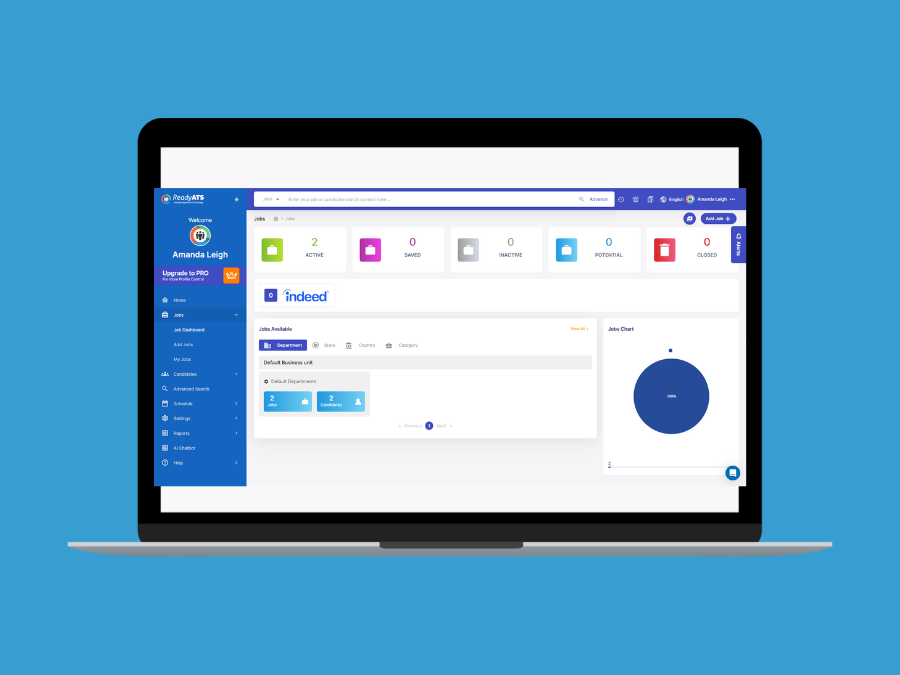In today’s digital landscape, hiring practices have evolved dramatically. Employers now have access to a wide range of digital tools, platforms, and strategies for sourcing the best candidates. Below are some of the most effective practices to help you find and attract the right talent.
1. Optimize Job Postings and Descriptions
• Be Clear and Concise: Create precise job descriptions that outline key responsibilities, qualifications, and expectations. Clarity helps candidates quickly identify whether they are the right fit.
• Use SEO Strategies: Include relevant keywords in job titles and descriptions to improve visibility on job boards and search engines.
• Highlight Company Culture: Communicate the values and culture of the company to attract candidates aligned with your organization’s mission.
2. Leverage Social Media Recruiting
• Engage on LinkedIn: Utilize LinkedIn’s recruiting tools to connect with passive candidates, post job openings, and join industry groups for networking.
• Expand to Other Platforms: Depending on the industry, explore platforms like Twitter (X), Facebook, or Instagram to showcase your company and connect with potential candidates.
• Build a Social Brand: Regularly post content that reflects the company’s achievements, values, and employee experiences. An attractive employer brand can be a powerful magnet.
3. Invest in Employee Referral Programs
• Referral Incentives: Create structured referral programs that incentivize current employees to recommend strong candidates. This often results in higher-quality hires.
• Easy-to-Use Systems: Implement digital tools that make submitting referrals seamless for employees.
4. Utilize AI-Powered Recruiting Tools
• Applicant Tracking Systems (ATS): Streamline the process of reviewing resumes and identifying top candidates using ATS software.
• AI Chatbots: Use chatbots to engage with candidates on job portals, answer questions, and schedule interviews automatically.
• Predictive Analytics: Employ analytics tools to assess candidate behavior, potential fit, and success likelihood within the company.
5. Target Passive Candidates
• Personalized Outreach: Use LinkedIn InMails or email campaigns to connect with passive candidates. Personalize messages to reflect their expertise and potential career benefits.
• Build Talent Pipelines: Maintain ongoing communication with passive candidates to keep them engaged for future opportunities.
6. Network Through Industry-Specific Platforms
• Join Niche Job Boards: Explore industry-specific job boards and communities that cater to specialized skill sets.
• Attend Virtual Conferences and Webinars: Establish your brand presence and build connections with professionals in the field.
7. Embrace Employer Review Sites
• Monitor Glassdoor and Similar Sites: Actively engage with and manage your company’s profile on sites like Glassdoor and Indeed. Respond to reviews and maintain a positive employer image.
• Leverage Positive Reviews: Highlight your organization’s strengths in recruitment materials based on genuine positive employee feedback.
8. Adopt Diversity Recruiting Strategies
• Diverse Job Boards: Use job boards dedicated to minority groups, veterans, and other specific communities to enhance diversity hiring.
• Inclusive Job Descriptions: Craft job descriptions that emphasize an inclusive work culture and avoid biased language.
9. Leverage Data and Analytics
• Measure Sourcing Channels: Use data analytics to determine the effectiveness of each sourcing channel, allowing for better allocation of recruiting budgets.
• Track Key Metrics: Monitor metrics like time-to-hire, cost-per-hire, and candidate quality to continuously improve the recruitment process.
10. Develop an Engaging Candidate Experience
• Speed Up Response Times: Respond promptly to candidate applications and inquiries to maintain interest.
• Communicate Regularly: Keep candidates updated on their application status and the next steps.
• Gather Feedback: After the hiring process, gather candidate feedback to identify areas for improvement in the recruitment experience.
Final Thoughts
Incorporating these best practices allows organizations to source top talent efficiently in this digital age. By utilizing the right mix of technology, employee engagement, and data-driven insights, recruiters can stay ahead of the competition in attracting quality candidates. Focus on building strong candidate relationships and a reputable employer brand to achieve long-term hiring success.




